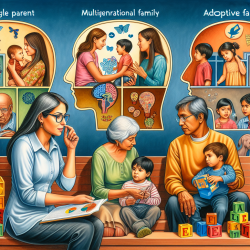Type 1 diabetes mellitus (DM1) is a chronic condition that requires continuous management and can significantly impact a patient's quality of life (QoL). Recent research has highlighted notable gender differences in QoL among adults with long-standing DM1. Understanding these differences is crucial for healthcare practitioners aiming to enhance patient care and outcomes.
Key Findings from Recent Research
The study titled "Gender differences in quality of life in adults with long-standing type 1 diabetes mellitus" provides valuable insights into how gender influences QoL in DM1 patients. Conducted on a cohort of 312 patients, the research found that female patients generally reported lower QoL compared to their male counterparts. This difference was attributed to several factors, including higher rates of depression and anxiety among women.
- Depression and Anxiety: The study found that 31.7% of female patients experienced depression compared to 14.9% of males. Similarly, anxiety was more prevalent among females (23.2%) than males (13%). These psychological factors were strongly linked to lower QoL scores.
- Diabetes-Related Worries: Women scored significantly worse on the diabetes-related worries subscale, indicating higher levels of concern about their condition's impact on daily life.
- Glycemic Instability: For women, frequent glycemic excursions were a specific predictor of lower QoL, highlighting the need for careful monitoring and management.
Implications for Practitioners
These findings underscore the importance of a gender-sensitive approach to diabetes care. Practitioners should consider the following strategies to improve QoL for their patients:
- Enhanced Psychological Support: Given the higher prevalence of depression and anxiety among female DM1 patients, integrating psychological support into routine care can be beneficial. This might include regular mental health screenings and access to counseling services.
- Tailored Education Programs: Educational interventions that address specific concerns related to diabetes management can empower patients and reduce anxiety levels. Tailoring these programs to address gender-specific needs could enhance their effectiveness.
- Advanced Monitoring Technologies: Utilizing continuous glucose monitoring systems can help manage glycemic variability more effectively, particularly for women who experience frequent glycemic excursions.
- Holistic Care Models: Adopting a holistic approach that combines medical, psychological, and educational support can lead to better health outcomes and improved QoL for DM1 patients.
The Path Forward: Encouraging Further Research
The study highlights areas where further research could provide deeper insights into the gender-specific challenges faced by DM1 patients. Exploring the underlying causes of psychological distress and developing targeted interventions could significantly enhance patient care. Practitioners are encouraged to stay informed about ongoing research in this field and consider participating in studies that aim to improve QoL for all DM1 patients.
To read the original research paper, please follow this link: Gender differences in quality of life in adults with long-standing type 1 diabetes mellitus.










